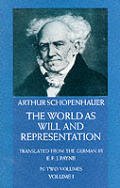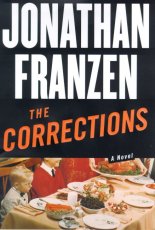15.8.06

I read this line in a review of some new Beckett volumes in the Aug. 7 & 14 New Yorker: “Since Beckett got from Schopenhauer what Schopenhauer had found in Buddhism, the connection is not far-fetched.” You’ll have to read the review yourself to know what connection is being referred to, but I mention it because, after taking my Introduction to Philosophy class over summer quarter at North Seattle Community College—which included a fairly extensive study of Schopenhauer—I actually am aware of the general idea that is shared between Buddha, Schopenhauer, and Beckett (to thumbnail it, we are objectifications of Will; Will=suffering; and the only really cohesive way out of the suffering is a degree of asceticism most of us are incapable of).
So this is where my academic reality, my cultural reality, and my virtual reality overlap. Because I’ve been able to so readily make connections between what I’ve been learning in my Introduction to Philosophy course this quarter—especially the Schopenhauer, whose The World as Will and Representation was easily my favorite text from the course—and my perennial enthusiasm for and excitement over pop culture, particularly film (and also since I’ve shamefully neglected this blog while school has been in session, as usual), I thought I’d summarize a few of those connections:
--Interiors (1978). Yes, the much-maligned Woody Allen film--it's the follow-up to the beloved Annie Hall, but Mr. Allen does not deign to show his face, and there is not one (intentional) joke! But if Mr. Allen generally considers himself the court jester of philosophy (check out his recent “Philosopher’s Diets” essay in The New Yorker, and I quoted a joke about quantum physics from Anything Else (2002) at one point in this class), it is in his dialogue for Interiors that he reveals that if he is a dabbler, he is at the very least a serious dabbler in philosophical ideas.
What came most readily to my mind was a dinner-table scene in which the siblings played by Diane Keaton and Mary Beth Hurt are confronted with their father’s mistress, an uninvited and rather unwelcome guest (the daughters have strong, perhaps pathological attachments to their emotionally unstable mother and are extremely dubious about their father’s abandonment of her). The coolly cerebral daughters (Keaton plays a successful poet, Hurt an aimless aspiring intellectual/artiste) represent intellectually sound, Schopenhauer-esque pessimism (dismissed as “fashionable” by the pleasure-seeking, traitorous father), and the mistress, Pearl, a twice-married hedonist who likes “pizzazz” and is intent on wringing all the pleasure out of life that she can, is one who looks on the bright side. Pearl’s bright red dress clashes with the sleekly minimalist attire of everyone else; she represents the vulgar, delusional “optimism” that Schopenhauer saw as burying one’s head in the sand. All these characters are discussing a play they’ve seen (I’ve taken the dialogue as written from Four Films of Woody Allen--Renata is the Keaton character, Pearl the mistress/future stepmother):
Arthur: Passion with pessimism is all the rage nowadays.
Renata: See, I don’t know. I mean, you call it fashionable, but it’s hard to argue that in the face of death, life loses real meaning.
Pearl (with a puzzled expression on her face): It is?
Renata: Well . . . (Laughing) I mean, I can’t argue it succinctly, but I suppose if you’ve read Socrates or Buddha or Schopenhauer, even Ecclesiastes . . . they’re very convincing.
Pearl: Well, they should know. I don’t read that much.
Since our readings for the class encompassed Ecclesiastes, some Plato, and some Schopenhauer, that line just kept ringing in my ears. I can now truthfully say that instead of just deriving a meaning from inference through context, I actually have a much better grasp of what the stances represented by this dialogue are supposed to mean. Pearl doesn’t read and is dumb and (apparently) happy; Renata reads too much and is smart but miserable. Schopenhauer thinks Pearl is miserable, too; she's just too delusionally optimistic to know it.
--The Corrections (2000). Schopenhauer looms prominently in Jonathan Franzen’s widely read, acclaimed (deservedly, I think) novel about a dysfunctional family, the patriarch of whom, although well-meaning, is a cold, domineering, sexist crank whose big themes are futility and repression. It is implied by Franzen’s characterization that the father has taken Schopenhauer too much to heart, with the result that he is unable to ever embrace anything, including his own family. As compelled as I was by my reading of Schopenhauer, I think this is a smart and probably accurate assessment of the downside of the big S.
--In my favorite section of Schopenhauer, he asserts that aesthetic contemplation is one temporary way that many humans have available to momentarily transcend the Will; in appreciating something beautiful, an act by which we cannot fulfill any tangible, Will-derived desire, we momentary become a “subject of pure knowledge,” like being a mind and a heart with every need fulfilled and no pesky body to drag us back down to Schopenhauer’s hellish fulfillment/unfulfillment cycle. I immediately thought of 2001: A Space Odyssey, which couldn’t be a more perfect film to mention in light of this idea; not only do I think it counts as just the kind of artistic achievement Schopenhauer was describing, but its very theme is becoming a “subject of pure knowledge”! I was so amazed by the aptness of this connection, I couldn’t help wondering whether or not Arthur C. Clarke and/or Kubrick were actually influenced by Schopenhauer when they created the film.
--There is a point in the same aesthetic-contemplation section of Schopenhauer where he writes, “The impression of the sublime can arise in quite a different way by our imagining a mere magnitude in space and time, whose immensity reduces the individual to nought." Now, if Michelangelo Antonioni hasn't made an entire body of work that centers around that kind of sublimity, then there isn't one who really has. From L'avventura to L'eclisse to Red Desert to The Passenger, Antonioni shows on a visual level that the individual, when captured against the magnitude Schopenhauer speaks of, is "reduced to nought." Somehow, I don't find the idea depressing in either Schopenhauer or Antonioni; in fact, I find it kind of liberating. We were given a diagram that showed how Schopenhauer is part of the lineage of thought (also including Kierkegaard) leading up to existentialism, and perhaps it's the embracing of the insignificance of most of what seems of prime importance to most of us, which I believe can be found in existentialist writings (which we didn't cover this quarter) as well as in Schopenhauer and Antonioni, that I find so profound.

P.S. I did my research project for the course on the French philosopher/world’s first essayist Michel de Montaigne (1533-1592). I collected some of what I thought were his choicest sayings here.
Subscribe to Comments [Atom]




